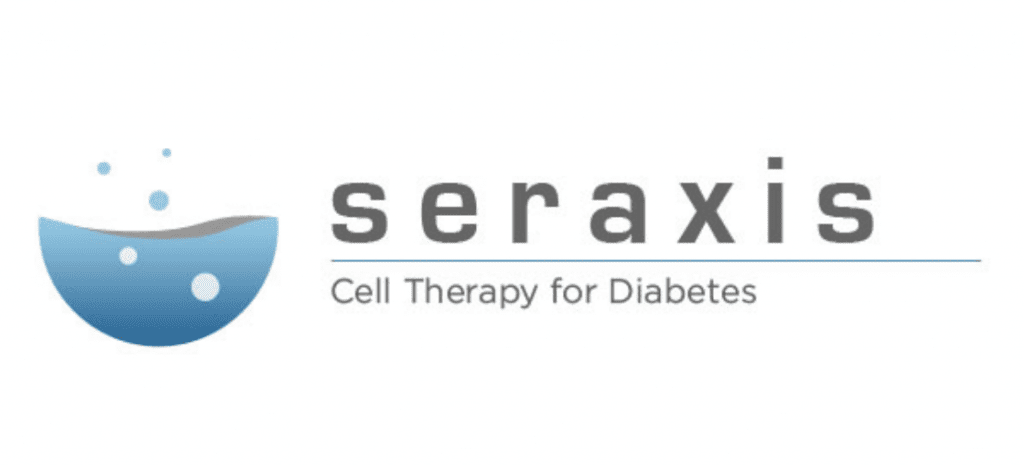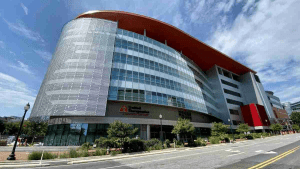
GIC Incubates Rising Stars in Maryland’s Life Sciences Ecosystem
The Germantown Innovation Center (GIC) is home to some of Maryland’s fastest-rising stars in the life sciences ecosystem. Multiple startups found a home in the Montgomery County incubator and benefit from the lab space and the strategic access to federal agencies, nearby thought leadership, and on-campus workforce access.
The GIC is located at Pinkney Innovation Complex for Science & Technology at Montgomery College. Its location provides students with the opportunity to be exposed to bleeding-edge life sciences work across a range of indications, from pandemic preparedness to oncology and autoimmune diseases.
Below is a description of ongoing work conducted by current tenants of the GIC as well as alumni companies.
Seraxis

Seraxis is developing a cell replacement therapy for insulin-dependent diabetes patients. Its lead therapy is SR-01, a cell therapy aimed at type 1 diabetes. The hope is the therapy will eliminate the need for patients to rely on insulin. If the therapy hits the mark in clinical testing, it could improve more than 4.5 million people’s lives.
The therapeutic approach required the development of a proprietary human stem cell line dubbed SR1423. The therapy replaces damaged or lost insulin-producing pancreatic cells with those grown in the Seraxis labs. The human stem cells mature into lab-grown pancreatic islets that generate hormones like insulin and glucagon, which allow patients to maintain a healthy level of glucose in the blood. In preclinical animal models, Seraxis’s islets have shown the potential to reverse diabetes.
Seraxis’s work has drawn the attention of several companies in the diabetes space, including Eli Lilly. The Indianapolis-based company backed a $40 million Series C financing round in February of this year.
Deka Biosciences

Precision medicine startup Deka Biosciences focuses on developing therapeutics for cancer and inflammatory diseases with its disease-specific Diakines, purposely engineered therapeutic proteins designed to deliver clinically validated cytokine combinations diseased tissue. According to company data, Diakines maximize patient benefits through improved pharmacokinetics/pharmacodynamics (PK/PD) function through the targeted delivery of dual and complementary cytokines to affected tissues or cells.
Deka’s lead asset is an EGFR-targeted DK210 Diakine initially aimed at renal cell carcinoma. The company noted that EGFR is a shared target with other cancers, including non-small cell lung cancer, pancreatic ductal adenocarcinoma, and colorectal cancer. Deka Biosciences plans to file an Investigational New Drug Application with the U.S. Food and Drug Administration in the fourth quarter of 2021 for its lead asset.
In addition to its lead oncology asset, Deka also has preclinical programs in Crohn’s, sepsis, psoriasis, rheumatoid arthritis, and other types of oncology.
Zalgen Labs

Zalgen Labs is an emerging leader in the development of countermeasures for existing and emerging hemorrhagic fevers such as the Lassa Virus and Ebola, which have become endemic in parts of West Africa. The company was founded on the concept of developing solutions to emerging viral threats in the far corners of the world that the western world has mainly ignored. Many of those viral diseases that have primarily been endemic are now potential pandemics that could once again bring the global economy to a halt and lead to widespread economic devastation.
The company developed the first rapid diagnostic test for Lassa fever and is also developing therapeutics against the animal-borne hemorrhagic virus. Zalgen plans to submit a pre-Investigational New Drug Application with the U.S. Food and Drug Administration for Arevirumab-3, the first-in-class immunotherapeutic for prophylaxis and post-exposure treatment of Lassa fever. Zalgen is also developing bi-specific antibodies against Lassa. That work is currently in preclinical development.
In addition to Lassa, Zalgen also developed diagnostics for COVID-19. The company developed The ReSARS CoV-2 ELISA, which is used for the detection of antibodies against N Nucleocapsid and S Glycoprotein antigens. The company is also developing additional novel SARS CoV-2 ELISA platforms and rapid antigen diagnostic tests to address additional public health needs in the current COVID-19 pandemic.
Akan Biosciences

Akan Biosciences is developing stem cell-based therapeutics that can be used to treat degenerative diseases and injuries. In February 2021, Akan announced the FDA accepted its Investigational New Drug Application (IND) for StroMel, the company’s lead asset for the treatment of osteoarthritis of the knee. This chronic condition has associated medical costs of more than $185 million per year in the United States. A Phase I clinical trial was expected to begin in March.
Akan’s StroMel is a proprietary adipose-derived Stromal Vascular Fraction (SVF) product. It is administered via intra-articular injections. StroMel will be frozen and stored, allowing multiple administrations with each lot. Although the current IND is for autologous administration, Akan noted in its announcement that it will also explore allogeneic applications as well.
“StroMel is designed as an off-the-shelf SVF product direly needed by patients in the U.S. Our proprietary technology will eventually lead to a paradigm shift in the development and manufacturing of affordable cellular therapies,” Mukesh Kumar, president of Akan said in a statement.
GIC Graduates
In addition to companies residing in the GIC, there have also been a couple of graduates that have gone on to establish their own roots in Maryland. Neuraly, Inc. and Arcellx, Inc. both set up shop in Gaithersburg.
Neuraly is developing disease-modifying agents for neurodegenerative disorders. Its lead asset, NLY01, is in Phase IIb studies in patients with Alzheimer’s disease. NLY01 is a proprietary long-acting analog of exendin-4, a glucagon-like peptide-1 receptor (GLP-1R) agonist. It is being developed as a disease-modifying agent for neurodegenerative disorders, including Parkinson’s and Alzheimer’s disease.
Earlier this month, GIC alum Arcellx received clearance from the FDA to begin Phase I testing for ACLX-001, an engineered cell therapy for the treatment of multiple myeloma. The study is expected to launch in the second half of 2021. Their Series C funding will advance its pipeline of Adaptive and Controllable Cell Therapies.




